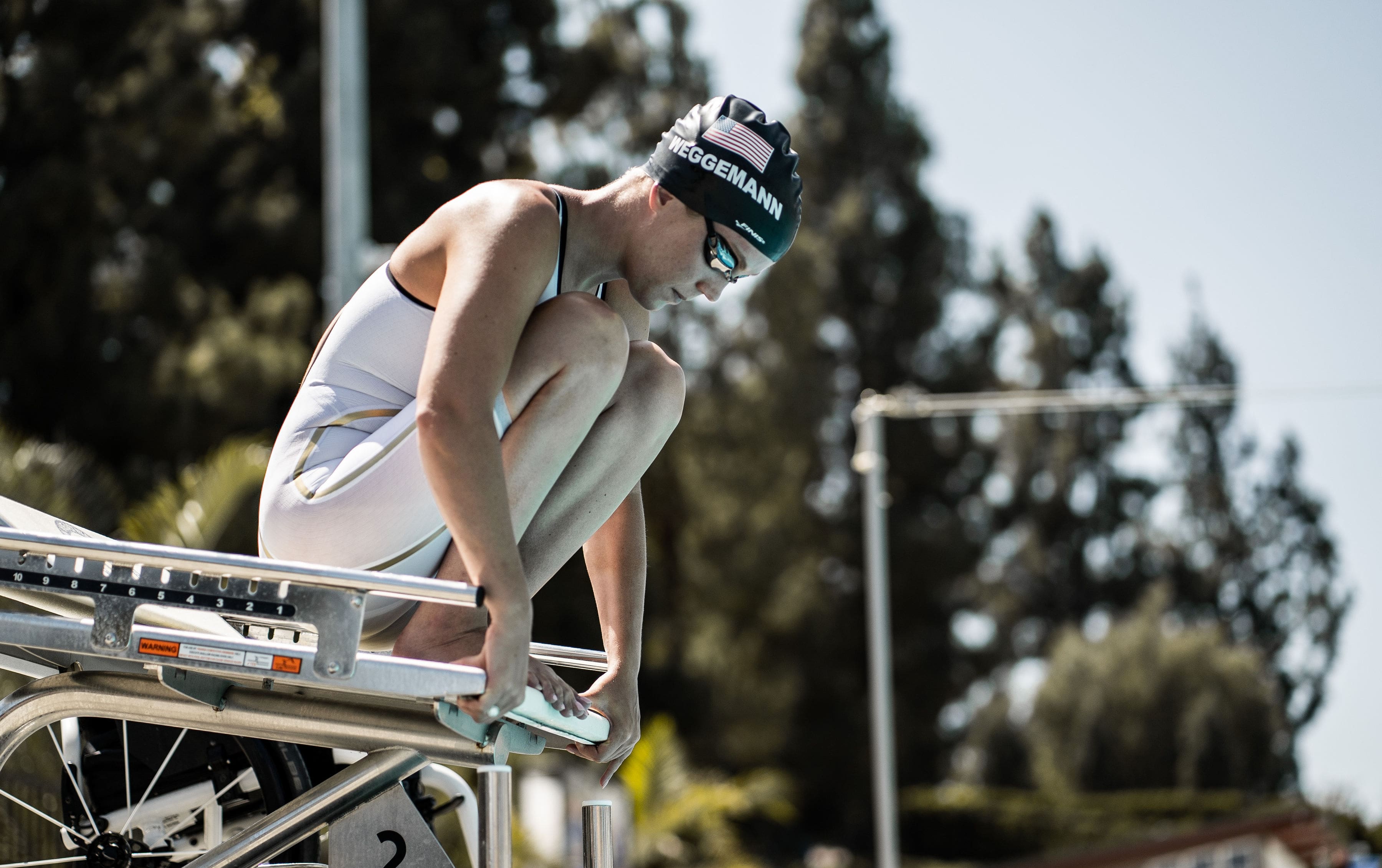Mallory Weggemann
Paralympic Swimmer
Mallory Weggemann is on the comeback. And it’s a mindset and a path this two-time Paralympian has blazed more than once.
In January of 2008, just a couple months shy of her 19th birthday, she was paralyzed from the waist down as a result of an epidural injection to treat her back pain, a lingering aftereffect from shingles. She was coming of age — her time of ultimate possibility — unexpectedly as a paraplegic.
“When I was injured, I realized seldomly are you presented with what can be,” she explains. “But as devastating as it was, I needed to decide if that split second that changed everything would be my defining moment — or just another moment that continued me along my story.”
By April 2008, she was out of the hospital and living with her parents. Her sister read about Paralympic Trials being held at the University of Minnesota. Weggemann had been the captain of her swim team at Eagan High School, but she hadn’t planned on a college or professional career. Still, she went to watch with her sister’s urging.
“I’ll always remember that first scent of chlorine,” she says. “Everything had changed for me, but not everything had changed. Chlorine smells like chlorine, no matter where you are in the world or what you’re going through.”
Two days later, she was in the pool. “I learned to adapt faster in the pool than on land,” she notes. “Swimming was as second nature as walking used to be. In so many ways, swimming was how I healed.”
In her first races, 8- and 9-year-olds were beating her. But not even two years after her paralysis, she had broken three world records. And in 2011, ESPN awarded her an ESPY for best female athlete with a disability. In London, her first Paralympics, she won gold and bronze. She has held 34 American records and 15 world records.
In her 50-meter freestyle in London, Weggemann came from behind to win gold. “It is never too late to fight for what you want, and you don’t give up halfway through the race,” she explains. “You fight for every single inch. It’s been seven years, but I’ll never forget a single moment of that race. It took 31.13 seconds to win, but a journey to get me there.”
Hot off her storybook beginning while on a media tour, she was showering in a hotel when the bench holding her up collapsed. Her left arm sustained permanent nerve damage. She thought about retiring.
But her then-fiancé kept the dream of the Rio Paralympics alive. After intense training, Weggemann swam all seven individual events, her highest placing out of medal contention. Although she admits there was immense heartbreak, “no medal could have made that moment any better,” she says. “It’s one of the most successful moments in my career, knowing everything it took to get there.”
After Rio, she was pulled out for two years. She prioritized walking down the aisle with leg braces, building her career as a motivational speaker, and rehabbing her arm following two major surgeries. Still, the Tokyo games called. In April, Weggemann ranked first in the world in one of her events — a huge starting point for her comeback for Tokyo 2020.
“There has not been a single day I haven’t dreamt of being on the Paralympic podium again,” she explains. “It feels like unfinished business. I want to hear the national anthem and see the American flag raised. Just as we are resilient, our dreams are resilient.”



